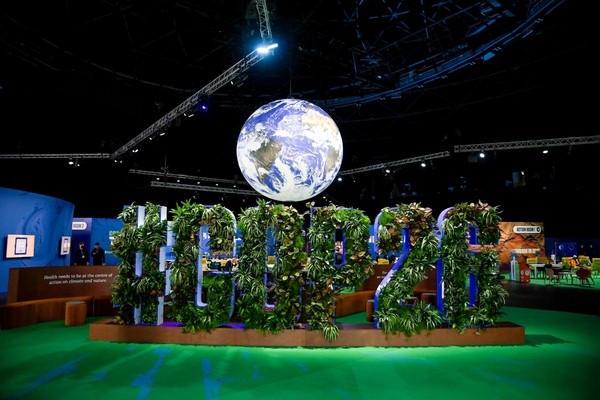UMD Experts Participating in COP 26 Climate Conference
Five from the Department of Geographical Sciences join the VIP list of world leaders
It isn’t easy getting into the annual United Nations Climate Change Conference—however, faculty members from the College of Behavioral and Social Sciences will still be among this year’s participants.
The “Conference of Parties” (COP), as the event is also often called, has been bringing together world leaders to tackle the issue of climate change for nearly three decades. This year’s event, COP 26 in Glasgow, would have been the 27th iteration had COVID not cancelled last year’s gathering.
“Official participation at COP is limited,” said George Hurtt, professor and associate chair of the Department of Geographical Sciences. “Interestingly, in addition to official participants from member countries debating and negotiating climate policy, there are also official observers. The Universities Space Research Association (USRA) was recently admitted to be an observer organization, and they included myself as a professor at the University of Maryland—an important member university of the USRA—to be one of the official observers.”
The USRA is a nonprofit organization that was created in 1969 to increase scientific collaboration between universities and federal entities like NASA. The University of Maryland is one of 114 member universities, and Hurtt is a representative that’s active and engaged on the topics that will likely be discussed at COP 26.
Hurtt suspects that a major point of discussion will be how much—or little—progress countries have made on their prior commitments to collectively combat climate change via “The Paris Agreement” of COP 21, plus what needs to be done next.
“I don’t have a crystal ball, but what I expect to be one of the high-level takeaways to come out of COP 26 will be that there has been some good progress toward addressing climate change, but it’s not enough,” said Hurtt. “I expect more countries will need to do more and set more ambitious targets to meet this challenge, and I think there will be a lot of eyes on the United States.”
Since the Paris agreement was signed, the Trump administration withdrew the United States from the list of participating countries. Then, shortly after he was elected, President Joe Biden had the United States reinstated—but legislation solidifying Biden’s plans to combat climate change is still being negotiated.
Beyond observing such country-specific commitments and proceedings, though, Hurtt is looking forward to bringing insights on how these negotiations work back to UMD.
“I think that it will be very important to observe the process,” said Hurtt. “ How does the decision-making process work? How do they go from having one million things they could do to what they agree upon? And perhaps most importantly from my vantage point as a scientist, is the scientific information they are using reliable? I’ll be able to see ‘under the hood’ for the first time the inner-workings of the process.”
Others at the university will likewise be able to get a real-time glimpse into what’s happening at COP 26, including Matt Hansen, Laura Duncanson, Catherine Nakalembe and Laixiang Sun from the Department of Geographical Sciences; professor Leon Clarke, professor Irving Mintzer, and Ph.D. student Brice Casey from the School of Public Policy; and Tom Oda, adjunct professor in the Department of Atmospheric and Oceanic Science.
Duncanson will be speaking in the Nov. 6 “Monitoring the lungs of the world from space - what satellites reveal about carbon storage in the forests of the Earth” Green Zone event, and Nakalembe will be participating in the Nov. 8 "AI for Climate Action" event.
Image of the COP26 Globe at the Hydro courtesy of Karwai Tang/ UK Government.
This article originally posted by UMD's College of Behavioral and Social Sciences.
Published on Fri, 11/12/2021 - 11:55


